Before incoming Donald Trump could be sworn in as the 45th President of the United States, he has already launched two major wars on American defence contractors. His first war was on Boeing, when he tweeted – “Boeing is building a brand new 747 Air Force One for future presidents, but costs are out of control, more than US$4 billion. Cancel order!”
Shortly after his tweet, he told reporters at Trump Tower – “The plane is totally out of control. It’s going to be over US$4 billion for Air Force One program and I think it’s ridiculous. I think Boeing is doing a little bit of a number. We want Boeing to make a lot of money, but not that much money.”
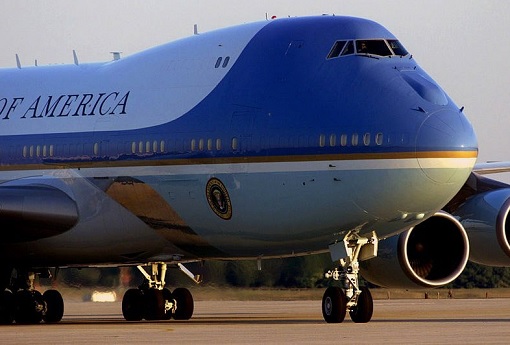
Mainstream media, as expected, instantly went into attack mode, rubbishing Trump’s US$4 billion figure. Boeing CEO Dennis Muilenburg arrogantly called on Trump team and Congress to back off. When documents were revealed showing that the new Air Force One program is indeed charged at US$4 billion, the media chickened out and keep quiet.
After meeting with Mr. Muilenburg, President-elect Trump was promised by the Boeing CEO that the Air Force One replacement program will cost less than US$4 billion, proving that Boeing has indeed overcharged the U.S. government, or American taxpayers for that matter. Had it been other president or president-elect, no such business negotiation would be carried out.
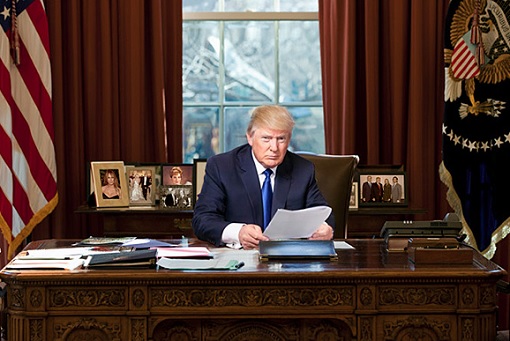
However, Boeing’s overpriced US$4 billion for a pair of latest-generation, modified 747-8 planes, to serve as Air Force One looks like child’s play when compares to what Lockheed Martin has already charged, and will continue to charge the American taxpayers. Lockheed, another defence contractor, is charging a staggering US$379 billion for 2,443 F-35 fighter jets.
Trump told reporters he was very concerned and was trying to bring down the “very, very expensive” estimated cost of the F-35 fighter jet program. Asked if he had won any concessions after his meeting the Lockheed CEO Marillyn Hewson, he said, “We’re just beginning, it’s a dance”, hinting that he was enjoying his skill in making new deal with the defence contractor.
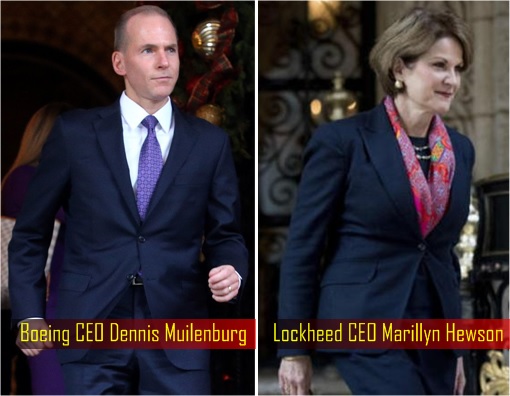
“We’re going to get the costs down,” Trump added, “and we’re going to get it done beautifully.” This statement alone should assure those who had voted for Trump that they have chosen not only a courageous president who dares to knock some senses off arrogant chief executives, the 45th POTUS is also one heck of a business negotiator who would put taxpayers’ money first.
Here’s the best part – Donald Trump had asked the Lockheed’s competitor, Boeing, to “price-out a comparable F-18 Super Hornet.” That’s competition-101 for those who have no idea what was Trump trying to do. To get the best deal, incoming President Trump is pitting major competitors for lucrative government contracts against each other on a public platform.
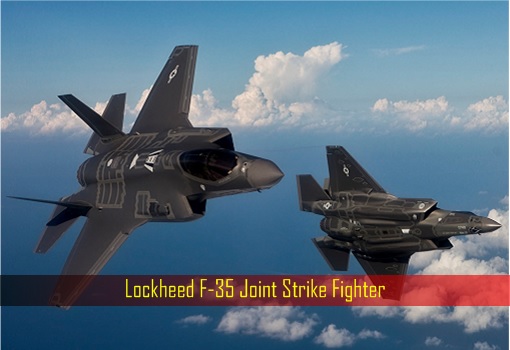
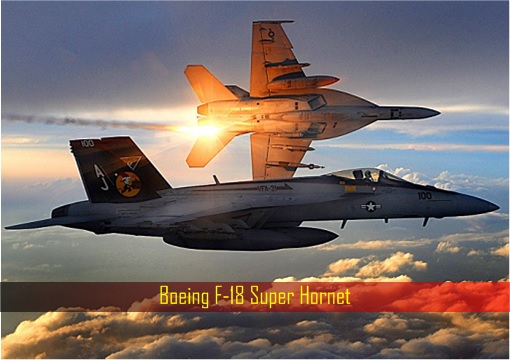
The simple fact that the F-35 program made up 20% of Lockheed’s total 2015 revenue of US$46.1 billion means the aerospace giant is now being forced back to the drawing board to deliver the best war machines at a very competitive pricing. At the same time, Boeing is given its fair share to present its next generation of F-18 Super Hornet, if any.
However, Marcus Weisgerber, the vice president of the Pentagon Press Association, tweeted that Trump cannot compare the two jets – the F/A-18 is cheaper, but unlike the F-35, it is not stealth. But is stealth technology really that invincible, or merely overrated? Both Russia and China also possess stealth planes, T-50 and J-20 respectively, or at least that was what they claim.
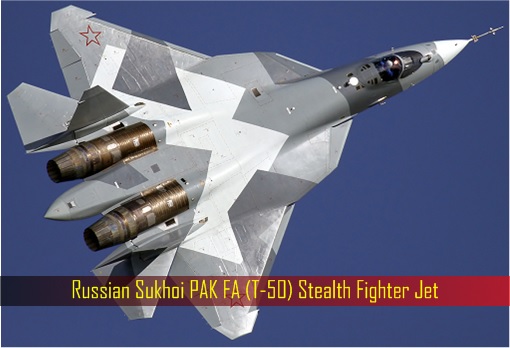
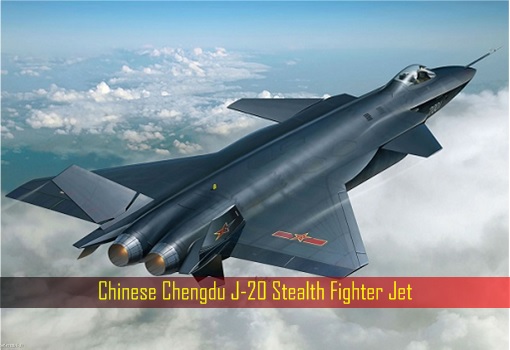
There’re many ways to skin a cat. Even if the Russian and the Chinese stealth technology is inferior than American’s, they can overwhelm F-35 by producing huge number of conventional non-stealthy fighter jets such as Sukhoi Su-35 or Su-30. Sure, the Su-35 and Su-30 aren’t stealthy, but they are fast, far-flying and capable of carrying heavy payloads of missiles and bombs.
What many don’t realize is the fact that in order for F-35 to be in “stealth” mode, it can carry only two bombs and two anti-aircraft missiles. F-35 is actually a machine forced to take the role of the F-18 carrier fighter, the A-10 tank buster, the F-16 fighter and filling the holes left by the limited number of F-22 Raptor. The F-35 “dream machine” is essentially a “jack of all trades, master of none.”
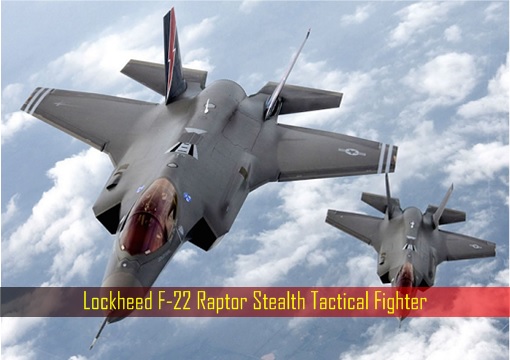
There were also reports that both Russian and Chinese have developed new “quantum radar system” that can detect stealth warplanes 100-km away. One has to remember that stealth is not a cloak of invisibility. Stealth technology just delays detection and tracking. Take away the stealth and F-35 is just another piece of overpriced conventional fighter jet.
Another tactic by the Russian and Chinese is building drones specially designed to detect low-observable stealth aircraft like the F-35, F-22 and B-2 bomber by using low frequency radars. Russia’s new UAV reportedly able to detect America’s stealth aircraft without itself being detected – a much deadlier but cheaper gadget. And we haven’t talk about Russian S400 SAM (surface to air missile) system.
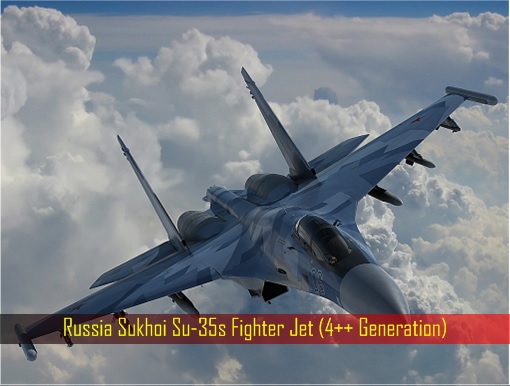
Pricing wise, the extreme reliable Sukhoi Su-35 cost merely US$50 million a pop while F-35 ranges from US$157 million to US$355 million (just the production cost), depending whether it was for Air Force (F-35A), Marine Corps (F-35B) or Navy (F-35C). Later batches of F-35 could be lower but now with Trump’s interference, it could go even lower.
But that’s nothing compares to the cost overruns and developmental delays. The F-35 project is the most expensive military projects in history, expected to cost US$1.5 trillion over the 55-year life of the program. Heck, before a single F-35 could be ready for service, it had already cost American taxpayers a mind-boggling US$400 billion.
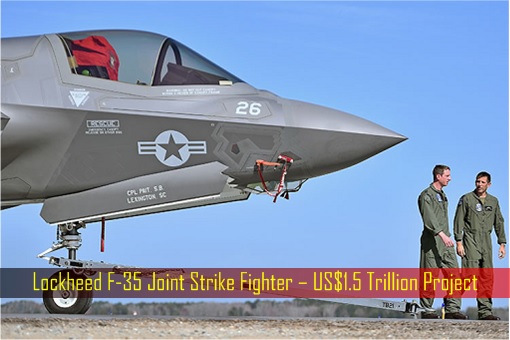
Even if American taxpayers don’t mind burning US$1.5 trillion for a masterpiece, there’s one final problem. The F-35 has multiple defects and problems – spanning from design issues that negatively impact its aerodynamics in flight to countless software bugs buried in the F-35’s eight million lines of code, on top of 24-million lines of buggy code in its maintenance and logistic software.
In a nutshell, there’re problems during heavy maneuvering, defective ALIS (Automatic Logistics Information System), helmet display issues, radar failure, fuel tank issue, ejector seat that may kill pilots, bracket that sparks fire, flaws in avionics processors, defective landing gear, decomposing insulation and the list goes on.
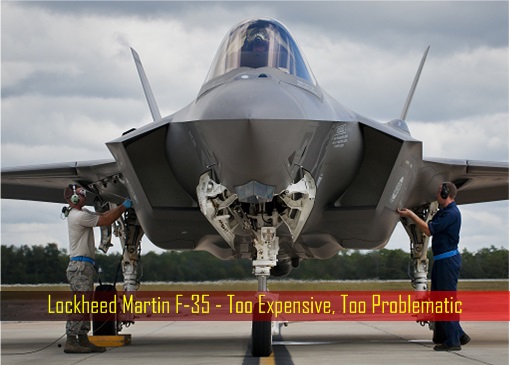
It got so bad that by March 2016, the F-35’s latest operating system has reported 931 open documented deficiencies, 158 of which are Category 1 – classified as those that could cause death, severe injury, or severe illness. If forced into a dogfight, an American F-35 pilot’s superior skills and experience might be the only factor that might save him or her from being shot down by a Russian Su-35.
If a super-expensive F-35 needs to call F-22 Raptor to save itself, why bother throwing good money after bad? Yes, F-18 and F-35 were designed for different purposes. But F-35 is too expensive and too problematic; it makes business sense to cut losses now. Of course, Trump’s top priority is to bring down the cost of F-35, failing which he may go for “upgraded F/18 Super Hornet”.
Other Articles That May Interest You …
- China’s Naughty Act Of War – Snatches U.S. Navy Submarine Drone & Sails Away!!
- Documents Prove “New Air Force One” Overpriced – Trump Was Right … Again
- A Powerful & Vengeful President Trump – ISIS & Radical Muslims Are In Grave Trouble
- Panic!! Russia’s Aircraft Carrier Leading A Fleet Of Warships Towards Mediterranean
- Here Are Russia’s 3 Awesome Weapons Which The U.S. Is Absolutely Terrified Of
- Forget Syrian War, A Saudi-Iran War Could Spark World War 3
- Checkmate – Russia Sends New Weapon “S-300V4 Gladiator” To Syria
- “Battle Of Aleppo” – Russia Challenges U.S. To A War … If Obama Dares
- Putin To Send Aircraft Carrier To Syria – To Wipe Out ISIS, To Humiliate NATO
- Not Over Yet – Here’re Some Of Russia’s Awesome Military Hardware In Syria

|
|
December 24th, 2016 by financetwitter
|


|

|

|

|

|

|




























Thank you for all those informative articles.